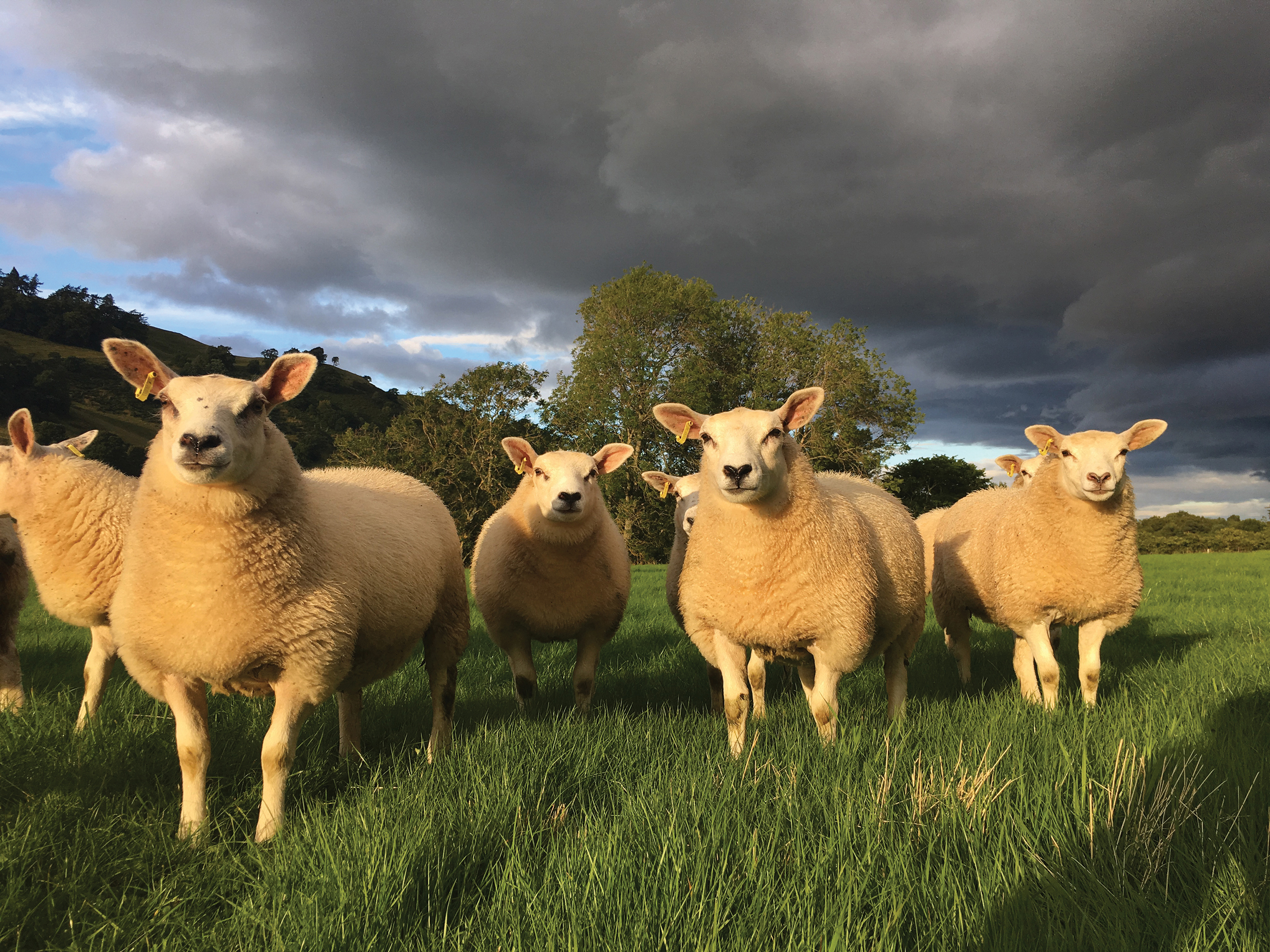by Jill Hunter, Harbro Beef & Sheep Nutritionist
As younger animals have an inbuilt growth efficiency, we can feed less for more gain. For example, a young lamb will need around 3.5kg of feed to gain 1kg weight whereas an older lamb, post weaning will need closer to 5kg of feed to gain 1kg weight.
With market prices at record highs, there is no better time to creep feed lambs and get them finished before any drop in market prices. Creep feeding can offer many advantages on farm but first and foremost it must be profitable to do so.
Rumen development
Creep feeding youngstock not only plays a role in maximising faster growth rates, but also drives rumen development which is crucial to maximise the absorption of nutrients from feed and forages. This sets up the rumen for lifelong efficiency and performance.
Reduce pressure on dams
Offering creep feed to youngstock reduces the pressure on their mothers, allowing them to regain body condition and return to their normal estrus cycle, ready for the tupping season, to make sure next year’s lambing period remains tight and scanning targets are reached.
This is particularly beneficial for twin or triplet bearing ewes where milk supply may be limited, or when lambing hoggs, who have an increased requirement for protein and energy to continue growing themselves, as well as feeding their lambs. Ewe body condition and plane of nutrition post-lambing has an impact on the number of lambs she will carry the following year and survivability of those lambs to full term.
Enhance performance with targeted vitamins and minerals
Vitamins and minerals from grass alone are often insufficient to meet youngstock requirements as growing animals have a high demand for nutrients relative to how much food they can eat. Fresh grass is commonly deficient in cobalt, copper, selenium and iodine. These trace elements are particularly important in young growing animals, with any deficiencies causing poor growth rates general illthrift.
Cobalt is particularly important for the production of vitamin B12 in the rumen, which is essential for energy metabolism. Young animals do not yet have a fully functioning rumen, so already have limited production of vitamin B12. With cobalt and vitamin B12 deficiency, youngstock can pine away with poor growth rates, often accompanied by scouring and a high worm burden due to a drop in the animal’s overall immunity. This leads to longer finishing times and reduced carcass weights.
Creep feeding provides a simple, targeted solution to meet the daily requirements for vitamins and minerals, tailored specifically to support youngstock health and performance.
Reduced stress at weaning
Stress has a huge impact on growth rates, health and immunity. By offering creep feed early on, youngstock get used to eating away from their mothers and become less reliant on milk, reducing the impact of stress from abrupt weaning.
For animals destined to be finished on concentrates, creep feeding gets youngstock into the habit of eating hard feed, easing the transition onto finishing rations. There is also a greater chance lambs will be finished before weaning time and so the problem of weaning stress is eliminated.
Reduced grazing pressure
As it can take longer to finish youngstock on grass alone, early season market premiums may be missed and grass quality will begin to deteriorate, reducing potential intakes and restricting growth rates. Animals are also more at risk of higher worm and parasite burdens if still grazing into the wetter autumn months. This will coincide with a drop in the dam’s milk production therefore further restricting potential growth rates.
Grass remains the cheapest feed on farm so we need to make sure we are maximising growth and efficiency of utilisation by prioritising grass to the most efficient grazing stock. Creep feeding youngstock when their feed conversion efficiency is at its highest, proves much more economical than feeding the mothers to produce milk. Speak to your Harbro advisor today about setting up cost effective creep feeding systems on your farm.
Find out more about Lamb Feeder, one of our most popular lamb feeds: https://www.harbro.co.uk/animal-feeds/product/clover-lamb-feeder/

